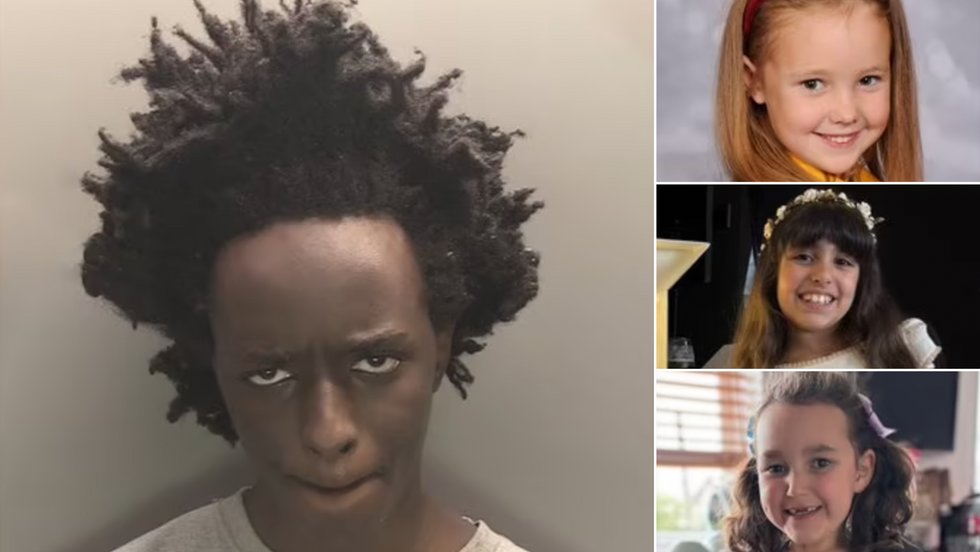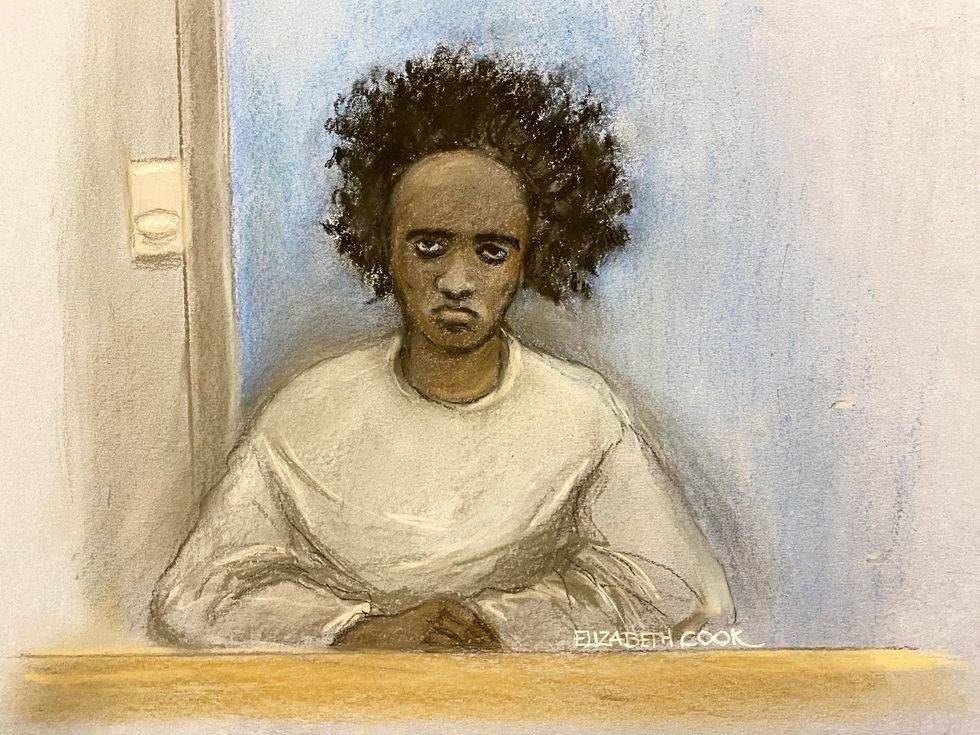Adam Chapman
Guest Reporter
Axel Rudakubana has pleaded guilty to murdering three young girls in a knife attack at a Taylor Swift-themed dance class in Southport.
The 18-year-old, who was born in Cardiff, also pleaded guilty to a terror offence on the first day of his trial at Liverpool Crown Court.
Rudakubana admitted to the production of a biological toxin, ricin, on or before July 29 and possession of information likely to be useful to a person committing or preparing to commit an act of terrorism.
The terrorism offence relates to a PDF file entitled Military Studies In The Jihad Against The Tyrants, The Al Qaeda Training Manual which he is said to have possessed between August 29, 2021 and July 30, 2024.

He had also been referred to the Government anti-extremism scheme Prevent three times before he stabbed Alice da Silva Aguiar, nine, Bebe King, six, and Elsie Dot Stancombe, seven, along with 10 others on 29 July last year.
He was referred to 'Prevent' due to concerns about his obsession with violence, though he was found not to be motivated by a terrorist ideology.
His first referral came when he was just 13 years old after he had viewed material relating to US school shootings.
A further two referrals were made in 2021 while Rudakubana was living in Lancashire.
After one of them, it was recommended that Rudakubana be referred to other services. It is not known if this happened.
Prevent is the official national programme to identify those who appear to be adopting terrorist ideologies, who are then assessed and then given help to try and put out extremist ideas.
Several terror attacks have been carried out by extremists referred to the Prevent scheme, including Ali Harbi Ali, who murdered Tory MP Sir David Amess in 2021.
The Crown Prosecution Service (CPS) did not classify the murders as terrorism because, despite possessing materials linked to terrorism like an al-Qaida handbook and attempting to make ricin, authorities were unable to confirm a clear political, religious, racial, or ideological motive behind the crime.
While Rudakubana was charged under the Terrorism Act 2000 for possessing materials, the actual attack itself was not designated as a terrorist incident due to the lack of evidence showing the intent to influence government policy or intimidate the public for a cause.
The distinction between mass murder and terrorism often hinges on motivation; terrorism requires a specific ideology or political motivation, which was not sufficiently proven in Rudakubana's case, making it more aligned with mass murder.
LATEST MEMBERSHIP DEVELOPMENTS

It is understood that Rudakubana showed violent behaviour while in high school with teachers highlighting concerns about his behaviour.
The teenager, who is diagnosed with autism spectrum disorder, is believed to have left Range High School in Formby in around 2019, before moving to a specialist school where they expressed concern about Rudakubana’s behaviour and his violence towards others.
At his first appearance at Liverpool Crown Court, Deanna Heer KC, prosecuting, said it was understood Rudakubana had been unwilling to leave the house and communicate with his family for a period of time.
She said: “He was seen by the psychiatrists at the police station but refused to engage with them.”
The court was told he had no obvious evidence of mental health disorder which required diversion to hospital.
Find Out More...
The 18-year-old, who was born in Cardiff, also pleaded guilty to a terror offence on the first day of his trial at Liverpool Crown Court.
Rudakubana admitted to the production of a biological toxin, ricin, on or before July 29 and possession of information likely to be useful to a person committing or preparing to commit an act of terrorism.
The terrorism offence relates to a PDF file entitled Military Studies In The Jihad Against The Tyrants, The Al Qaeda Training Manual which he is said to have possessed between August 29, 2021 and July 30, 2024.

He had also been referred to the Government anti-extremism scheme Prevent three times before he stabbed Alice da Silva Aguiar, nine, Bebe King, six, and Elsie Dot Stancombe, seven, along with 10 others on 29 July last year.
He was referred to 'Prevent' due to concerns about his obsession with violence, though he was found not to be motivated by a terrorist ideology.
His first referral came when he was just 13 years old after he had viewed material relating to US school shootings.
A further two referrals were made in 2021 while Rudakubana was living in Lancashire.
After one of them, it was recommended that Rudakubana be referred to other services. It is not known if this happened.
Prevent is the official national programme to identify those who appear to be adopting terrorist ideologies, who are then assessed and then given help to try and put out extremist ideas.
Several terror attacks have been carried out by extremists referred to the Prevent scheme, including Ali Harbi Ali, who murdered Tory MP Sir David Amess in 2021.
Why did the CPS not classify the murders as terrorism?
The Crown Prosecution Service (CPS) did not classify the murders as terrorism because, despite possessing materials linked to terrorism like an al-Qaida handbook and attempting to make ricin, authorities were unable to confirm a clear political, religious, racial, or ideological motive behind the crime.
While Rudakubana was charged under the Terrorism Act 2000 for possessing materials, the actual attack itself was not designated as a terrorist incident due to the lack of evidence showing the intent to influence government policy or intimidate the public for a cause.
The distinction between mass murder and terrorism often hinges on motivation; terrorism requires a specific ideology or political motivation, which was not sufficiently proven in Rudakubana's case, making it more aligned with mass murder.
LATEST MEMBERSHIP DEVELOPMENTS
- Reform UK eats away at Labour lead in new poll as Farage NOT Starmer invited to Trump inauguration
- Labour accused of bid to 'rig' election by scrapping voter ID and letting foreign nationals vote
- Starmer's back against the wall as Labour's 'core voters' back death penalty for grooming gangs in shock result

What else do we know about Rudakubana's background?
It is understood that Rudakubana showed violent behaviour while in high school with teachers highlighting concerns about his behaviour.
The teenager, who is diagnosed with autism spectrum disorder, is believed to have left Range High School in Formby in around 2019, before moving to a specialist school where they expressed concern about Rudakubana’s behaviour and his violence towards others.
At his first appearance at Liverpool Crown Court, Deanna Heer KC, prosecuting, said it was understood Rudakubana had been unwilling to leave the house and communicate with his family for a period of time.
She said: “He was seen by the psychiatrists at the police station but refused to engage with them.”
The court was told he had no obvious evidence of mental health disorder which required diversion to hospital.
Find Out More...
